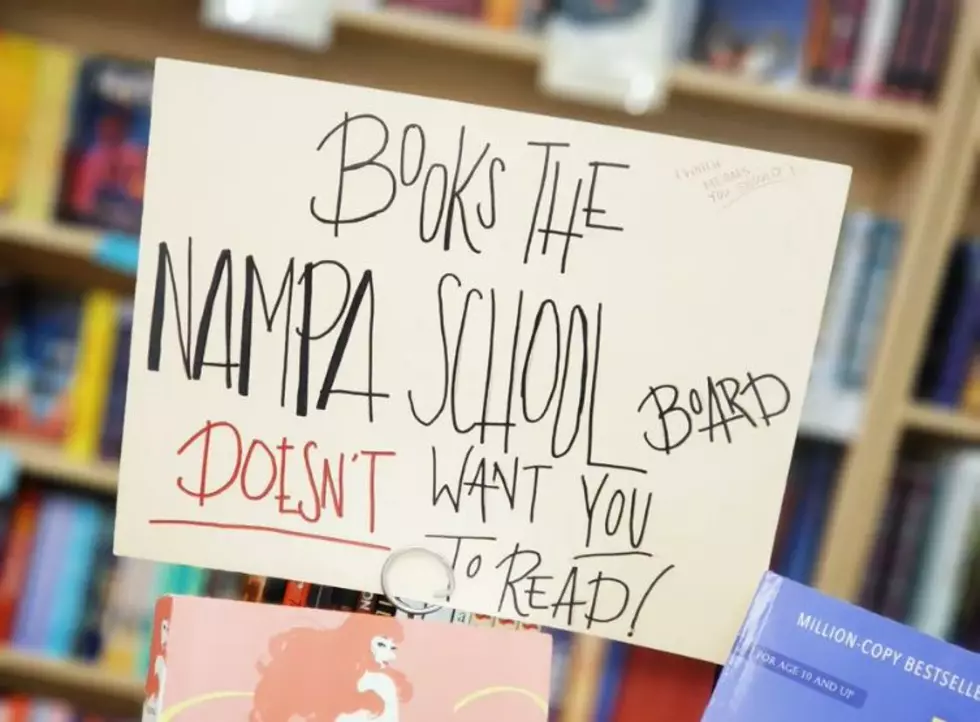
Nampa School District is Banning 24 Books From Their Libraries
After a regular school board meeting on Monday afternoon, the Nampa School District is pulling two dozen books from their library shelves.
The board of trustees passed a 3-2 vote, and as a result, 24 books will be removed and banned forever.
The list of books that are going to be banned includes many types of titles, including well-known classics – such as The Handmaid's Tale, Perks of Being a Wallflower and Extremely Loud and Incredibly Close – and an informative health book.
Book Banning in Idaho
The conversation of book banning has been raging on for many years, but it has recently gained momentum as efforts have heightened across the country.
Just recently, a bill was making its way through the Idaho legislature – if passed, it would have made it possible for librarians, teachers and educators to be fined and/or receive jail time for passing along “harmful” material to students.
While it did not pass, lawmakers incidentally cut millions of dollars from the state library commission’s annual budget in response.
Book Banning Across America
According to PEN America, an organization that advocates for free expression and literacy, in a nine month period between July 2021 and March 2022, there have been nearly 1,600 books banned across the United States.
There are currently 26 states with bans, which includes 86 school districts, 2,899 schools and over 2 million students.
Jonathan Friedman, the director of PEN America’s Free Expression Program, stated in a press release that challenges to books are happening at a rate unlike anything they’ve ever seen.
“What is happening in this country in terms of banning books in schools is unparalleled in its frequency, intensity and success,” Friedman said.
What Types of Books Are Being Banned?
PEN America reported that the most common themes among these books are race and racism, LGBTQ+ identities and sexual education in schools.
Some other themes include social justice, history, sexual content, death, grief and suicide.
They also pointed out that the most alarming part is not the number of books that are being banned, but “the processes – or lack thereof – through which such removals are being carried out.”
There are safeguards put in place to ensure that districts follow strict procedures regarding book banning, yet 98% of the current bans have not reached these standards.
Because of this, these actions are seen by many as an attack on First Amendment freedoms, and begs the question:
When will it be enough?
Idaho's Top 10 Best Public High Schools
Which Ada County School District is Among the Best in Idaho?
25 Hilariously Ridiculous Reviews of High Schools In and Around Boise
If You Live In One of These 15 Towns You're Among The Smartest People in Idaho
More From 103.5 KISS FM


![Scary ‘Near Collision’ on Idaho Road Sparks Online Debate [Video]](http://townsquare.media/site/737/files/2024/04/attachment-Screen-Shot-2024-04-15-at-1.24.57-PM.jpg?w=980&q=75)






